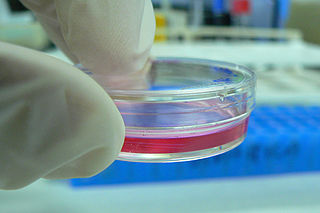Scientists have implanted a lab-grown vagina in humans, a medical first.
The patients, four teenaged girls, donated their own tissue to be used for the development of the vagina.
These girls suffer from Mayer-Rokitansky-Kuster-Hauser (MRKH) syndrome.
The vaginas were implanted in June 2005 and October 2008.
Their yearly follow-up visits concluded that the implants were a success with the lab-grown organs functioning normally, even during sex. Their tissue was acting just like the original tissue.
This study gives hope to patients who need vaginal reconstructive surgeries. It also helps establish the benefits of regenerative medicine strategies when used on human organs and tissues.
However, the operation is still waiting for FDA approval. Once it is rendered safe, it can even be used on men who looking for a sex change.
The pilot operation was conducted by specialists from the US and Mexico. A biopsy was done on the patients’ vagina. Cells from the samples were expanded then set on a biodegradable material in a manufacturing facility that is then formed by hand into the shape of a vagina to be customized to each patient.
Once the vagina is implanted, the nerves and blood vessels are developed and a tissue is created. As the cells continue to create a support structure around the implant, it is then replaced by a new vagina.
The operation was conducted at the HIMFG Tissue Engineering Laboratory in Mexico City. The surgeons prepared the pelvis of the patients by creating a canal, then sutured the implant to their vagina.
For the four patients and the surgeons, they considered the operation a rewarding one.
The operation is considered as a useful addition to the existing treatments for MRHK. However, this method may encounter problems when the lack of muscle may cause the narrowing or contracting of the organ.
This lab-grown vagina implant procedure was developed in the early 1990s by the Wake Forest Institute for Regenerative Medicine’s Dr. Anthony Atala. The doctor and his team experimented with mice and rabbits using lab-grown vaginas.
You can learn more about lab-grown organs in the links below.
- Lab-grown vaginas and noses for patients
- Mayer-Rokitansky-Kuster-Hauser syndrome
- Vaginal reconstruction
- Disorders of the female reproductive organs and tract
- Reconstruction of vaginal defects
Looking to educate yourself further about infection control? Get your Approved NYS Infection Control and Barrier Precautions certificate online with us now! Click here to get started now.

